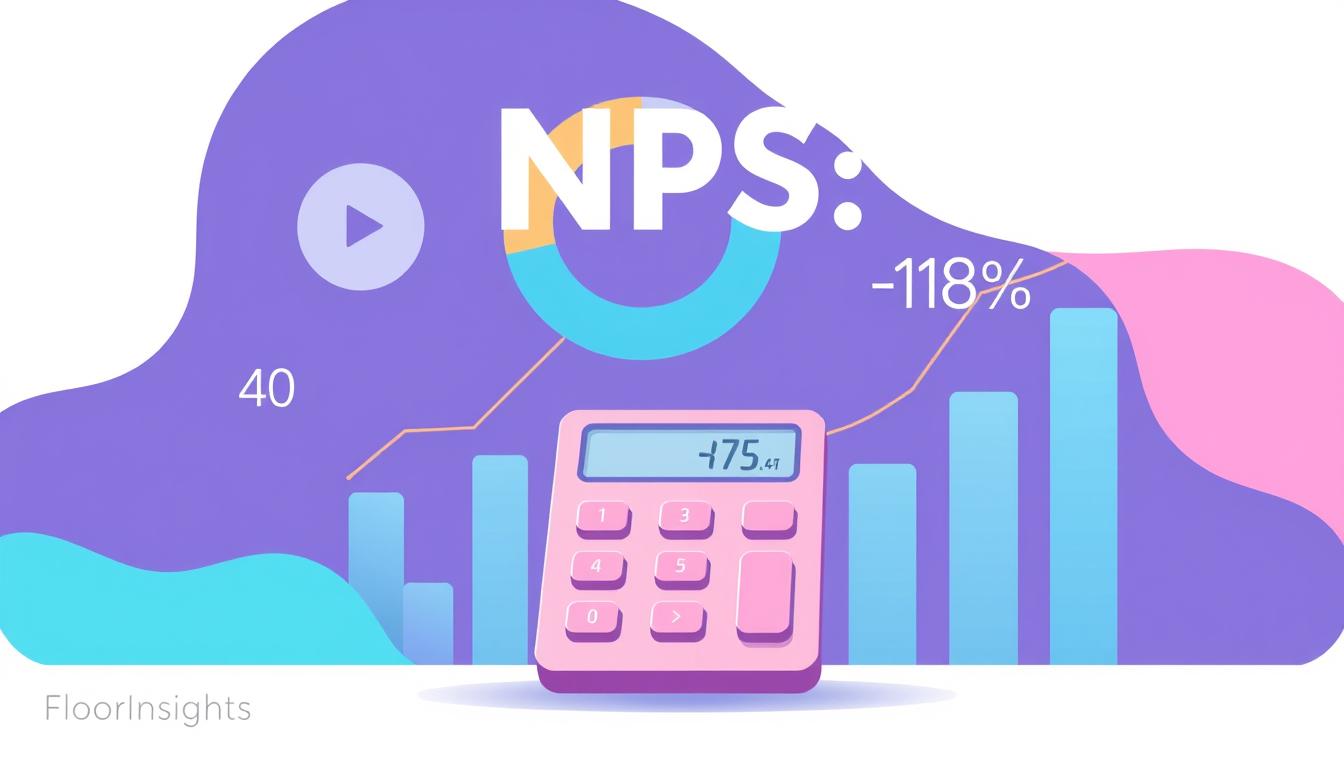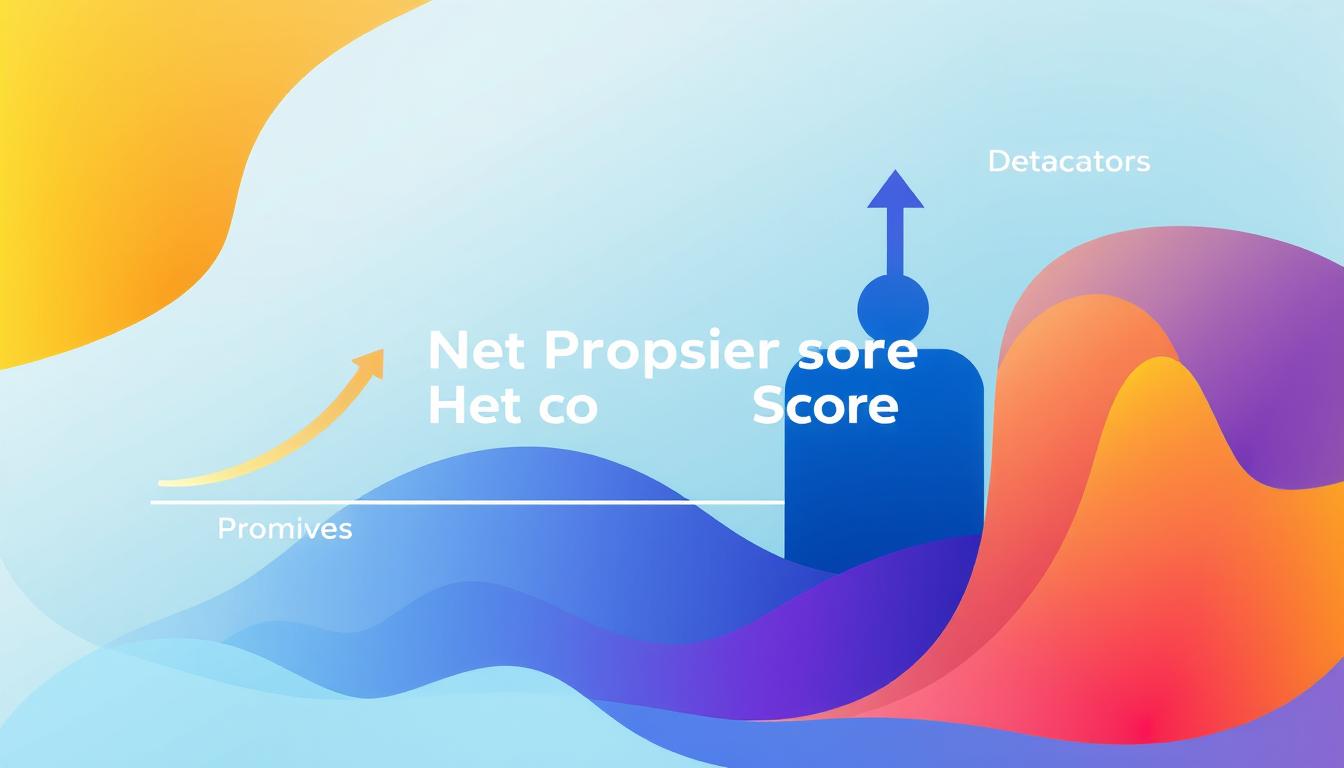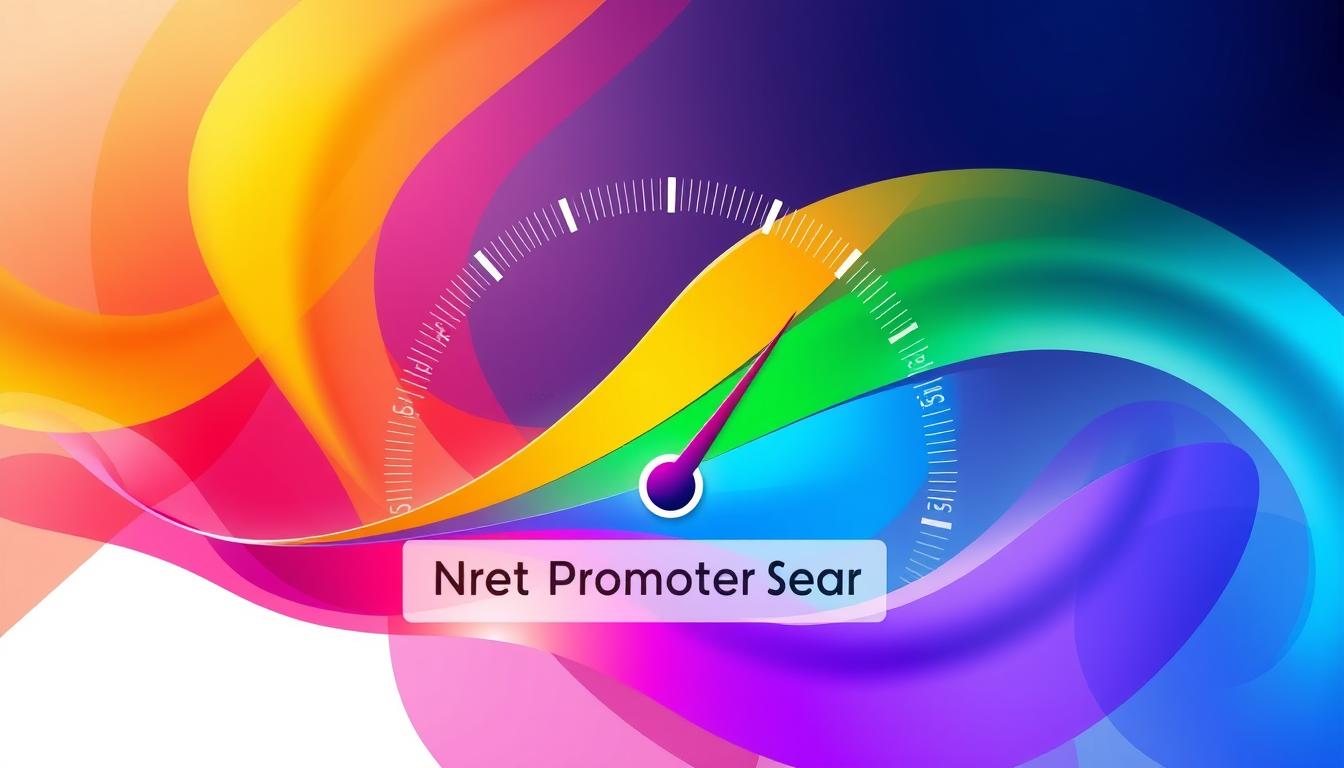In today’s competitive business environment, understanding how we assess customer loyalty is vital. The Net Promoter Score (NPS) provides an insightful way to gauge this loyalty through targeted customer satisfaction surveys. NPS helps us pinpoint areas for improvement within our customer relationship management (CRM) strategies. By recognizing how likely our customers are to recommend our products or services, we can reshape our CRM initiatives to enhance customer experiences and ultimately drive business growth. Integrating NPS into our evaluations will enable us to better grasp customer sentiments, thus paving the way for improved engagement and satisfaction.
Key Takeaways
- The Net Promoter Score is crucial for measuring customer loyalty.
- Implementing customer satisfaction surveys enhances understanding of clientele needs.
- NPS offers insights that can refine our CRM strategies.
- Tracking NPS can lead to improved customer experiences.
- Integrating NPS into business processes can foster customer satisfaction and loyalty.
Understanding the Importance of CRM in Business
In today’s competitive landscape, customer relationship management has emerged as a crucial element for any successful business. Effective CRM systems are designed to streamline interactions with both current and potential customers, leading to an enhanced understanding of their needs and preferences. This foundation allows us to implement impactful CRM strategies that foster better customer engagement.
The role of CRM cannot be overstated when considering its potential to drive business growth. By centralizing customer data, teams gain insights that help identify trends and behaviors, enabling personalized communication and targeted marketing efforts. This tailored approach significantly improves the customer experience, leading to increased retention rates and satisfaction levels.
Striving for better customer engagement through effective CRM practices not only cultivates loyalty but also creates advocates for our brands. When customers feel valued and understood, they are more likely to share their positive experiences, further amplifying our reach.
| Benefits of CRM for Business Growth | Impact on Customer Engagement |
|---|---|
| Improved customer data organization | More personalized communication |
| Enhanced decision-making capabilities | Increased customer loyalty |
| Streamlined sales processes | Higher customer satisfaction |
| Efficient marketing campaigns | Greater brand advocacy |
In conclusion, utilizing effective CRM strategies plays a pivotal role in enhancing customer relationships and driving business growth. The insights garnered through thoughtful application of CRM can transform how we engage with our customers, fostering long-term partnerships and success.
What is Net Promoter Score?
Understanding the Net Promoter Score definition allows businesses to measure customer attitudes effectively. NPS serves as a tool for assessing how likely customers are to recommend a company’s products or services to others. By using a simple rating scale from 0 to 10, we can categorize respondents into three distinct groups: promoters, passives, and detractors. This classification not only simplifies the evaluation process but also provides clear insights into customer sentiment.
Defining the Net Promoter Score
The Net Promoter Score is derived from customer feedback collected through a single, straightforward question: “On a scale from 0 to 10, how likely are you to recommend our company to a friend or colleague?” The responses categorize customers as follows:
- Promoters (score 9-10): Loyal supporters who will keep buying and refer others.
- Passives (score 7-8): Satisfied but unenthusiastic customers who are vulnerable to competitors.
- Detractors (score 0-6): Unhappy customers who can harm the brand through negative word-of-mouth.
The final Net Promoter Score is calculated by subtracting the percentage of detractors from the percentage of promoters. This formula helps us understand the overall customer loyalty evaluation across our customer base.
Importance of NPS in Evaluating Customer Loyalty
The NPS significance extends beyond mere numbers. It offers insights into our customer’s experiences and satisfaction levels. Regularly assessing NPS enables us to pinpoint areas needing improvement, guiding product or service enhancements. This process fosters a stronger connection with our loyal customers, encouraging them to remain engaged and satisfied with our offerings. By focusing on customer feedback derived from the NPS, we can shape our strategies effectively to build a more loyal customer base.
How NPS Enhances Customer Satisfaction
The relationship between the Net Promoter Score (NPS) and client satisfaction serves as a critical element in refining our understanding of customer engagement. By employing NPS surveys, we obtain direct feedback from our customers regarding their experiences. This approach fosters an environment where we can assess the NPS impact on customer satisfaction effectively.
Addressing customer sentiments highlighted in the NPS data allows us to identify key issues affecting their satisfaction levels. We can then tailor our strategies to focus specifically on these areas, thereby enhancing customer experience significantly. This feedback loop not only addresses current pain points but also aligns our offerings with client expectations. As a result, we witness notable improvements in client satisfaction, solidifying loyalty and fostering long-term engagement.
Ultimately, leveraging NPS as a tool for gauging customer sentiment equips us with the insights necessary to drive our improvement initiatives. Continuous evaluation and the application of feedback create a foundation for sustainable growth, making NPS an indispensable resource in our pursuit of excellence in client satisfaction.
Integrating NPS into Your CRM Strategy
Integrating NPS into our CRM strategy represents a crucial step towards enhancing customer experience and loyalty. Effective NPS implementation requires careful planning and alignment with existing processes to maximize value. We will explore best practices and share examples of successful NPS integration, focusing on how leading companies leverage their customer feedback loops to drive measurable improvements.
Best Practices for Implementation
To ensure a successful NPS implementation, we must consider several best practices:
- Timing of Surveys: Conduct NPS surveys shortly after significant customer interactions to capture immediate feedback.
- Survey Format: Keep the surveys concise and user-friendly to encourage participation.
- Follow Up: Actively engage with respondents by responding to their feedback and informing them of actions taken as a result.
- Data Integration: Ensure the NPS data is integrated into our CRM system for comprehensive insights and reporting.
Examples of Successful NPS Integration
Several companies demonstrate remarkable results from effective NPS integration into their CRM strategies:
| Company | NPS Implementation Strategy | Outcome |
|---|---|---|
| Amazon | Real-time NPS feedback loop post-purchase | Increased customer retention by 15% |
| Airbnb | Monthly NPS surveys to hosts and guests | Enhanced customer satisfaction ratings by 20% |
| Apple | Integrating NPS findings into product development | Boosted product recommendations by 25% |
Utilizing Customer Feedback for CRM Improvement
In our pursuit of delivering exceptional customer service, the customer feedback utilization process becomes pivotal. We can glean valuable insights from various feedback mechanisms such as NPS, helpdesk feedback forms, and client satisfaction surveys. By systematically analyzing this feedback, we can pinpoint areas for improvement and implement effective CRM improvement strategies.

Encouraging clients to fill out a client feedback form not only promotes engagement but also allows us to understand their needs and challenges better. Incorporating this feedback drives our continuous improvement cycle, fostering a culture that prioritizes client satisfaction and relationship quality. The following table illustrates how different elements of customer feedback contribute to our CRM enhancement:
| Feedback Source | Insight Gained | Strategic Action |
|---|---|---|
| NPS Surveys | Overall customer loyalty | Refine product offerings based on promoter feedback |
| Helpdesk Feedback Forms | Service response effectiveness | Enhance staff training and communication |
| Client Satisfaction Surveys | Product satisfaction levels | Adjust features or launch new ones based on demand |
| Experience Surveys | Customer journey insights | Revamp marketing strategies for better outreach |
Through diligent customer feedback utilization, we can not only enhance our CRM systems but also foster deeper, more meaningful relationships with our clients. Our commitment to leveraging insights from client feedback forms allows us to master the art of continuous improvement in our service delivery.
Analyzing NPS Results for Business Growth
Analyzing NPS results provides valuable insights into customer sentiments, which aids in driving our overall business performance. Through careful assessment of NPS data, we can identify critical business growth metrics that reveal both strengths and weaknesses within customer experiences.
Key Metrics Derived from NPS Surveys
When conducting NPS analysis, various metrics can be derived that highlight customer satisfaction and loyalty trends. Understanding these metrics is vital, as they inform our strategic decisions regarding customer relationship management. Some of the key metrics include:
- Response Rate: Reflects customer willingness to engage with the survey.
- Promoter Percentage: Indicates the proportion of customers who are likely to recommend our services.
- Detractor Percentage: Highlights the percentage of customers expressing dissatisfaction.
- Net Promoter Score: The overall score derived from subtracting detractors from promoters.
- Trends Over Time: Comparison of scores across various timelines to assess progress.
Transforming Insights into Actions
Once we gather actionable data from NPS analysis, the next step is transforming insights into actions. This process involves creating strategic plans that address areas needing improvement while enhancing customer satisfaction. Effective strategies include:
- Prioritizing customer feedback in decision-making processes.
- Implementing targeted improvements based on survey insights.
- Monitoring changes in NPS scores continuously to evaluate success.
- Communicating results back to customers to reinforce their input.
The goal is to ensure that the shifts we make are not only reflective of data but also resonate with our customers. By focusing on these insights, we can pivot our strategies to foster loyalty and position our business for sustainable growth.
| Metric | Importance | Actionable Insight |
|---|---|---|
| Response Rate | Indicative of customer engagement | Enhance survey outreach efforts |
| Promoter Percentage | Shows customer loyalty | Leverage promoters for referrals |
| Detractor Percentage | Identifies dissatisfaction | Implement corrective actions promptly |
| Net Promoter Score | Overall customer sentiment | Guide strategic improvements |
| Trends Over Time | Measures progress | Adjust strategies based on trends |
Case Studies: Successful Companies Using NPS in CRM
We explore notable NPS case studies that showcase how leading companies effectively employ NPS to enhance their CRM strategies. These examples highlight significant improvements in customer loyalty and satisfaction driven by strategic NPS implementation.
Real-World Examples of NPS Impact
Companies like Apple and Amazon have demonstrated the transformative power of NPS in their customer relationship management. Apple’s focus on customer feedback through NPS has led to innovations that resonate with their audience. Their dedicated approach to understanding customer sentiments resulted in a loyal customer base and consistent growth.
Amazon’s integration of NPS tools allows them to track customer experience in real-time. By acting on feedback, they streamline operations, enhancing customer satisfaction. Their successful NPS implementation has directly contributed to their reputation as a customer-centric organization.
Lessons Learned from Industry Leaders
From these NPS case studies, we derive valuable lessons applicable across industries. Key takeaways include:
- Regular Feedback Loops: Establishing continuous channels for customer feedback is crucial for understanding evolving sentiments.
- Action on Insights: Implementing changes based on feedback fosters trust and loyalty among customers.
- Cross-Department Collaboration: Involving multiple teams ensures a holistic approach to customer relationship management.
These insights reflect common pitfalls and effective strategies seen during successful NPS implementation efforts within organizations. Learning from industry leaders can guide businesses aiming to enhance their own CRM strategies through NPS.
| Company | NPS Score | Outcome |
|---|---|---|
| Apple | 72 | Increased product loyalty and innovation |
| Amazon | 62 | Improved customer satisfaction and decreased churn |
Challenges in NPS Implementation and CRM Strategies
Implementing NPS within our CRM strategies presents various challenges that can hinder optimal performance. Awareness of these challenges in NPS implementation paves the way for more effective adoption and use.
- Customer survey fatigue can arise when clients feel overwhelmed by repetitive requests for feedback. This fatigue leads to lower response rates, compromising the reliability of our NPS data.
- Misinterpretation of NPS feedback poses another significant challenge. Without proper context, scores can lead to misguided decisions. Understanding the nuances behind the numbers is crucial for effective strategy formulation.
- Caution is necessary with insufficient follow-up on results. Organizations often fail to act on NPS insights, resulting in CRM strategy difficulties and missed opportunities for improvement.
To navigate these NPS barriers, we need a comprehensive strategy that addresses these issues. By proactively tackling these challenges, businesses can achieve smoother integration of NPS into their CRM strategies, ultimately enhancing customer satisfaction.
Future Trends for NPS in Customer Relationship Management
As we look ahead, the future of NPS in customer relationship management will likely be influenced by several key factors. The integration of technology such as AI and machine learning is transforming the methods we use to collect and analyze evolving customer feedback. Companies are meticulously tailoring their approaches to meet the rising expectations of customers, prioritizing personalized experiences.
Predictions indicate that the future of NPS will hinge on real-time feedback mechanisms that allow businesses to react swiftly to customer sentiments. This proactive approach will not only enhance customer satisfaction but also drive loyalty through timely interventions.
We foresee that CRM trends will increasingly focus on data-driven decision-making. Organizations will rely on sophisticated algorithms to predict customer behavior based on previous interactions, enabling them to craft strategies that resonate with individual needs.
Here are some anticipated trends:
- Increased use of automation in gathering and processing customer insights.
- Expansion of social listening tools to capture nuanced customer sentiments.
- Greater emphasis on customer segmentation for more tailored NPS surveys.
- Implementation of dynamic scoring systems that adapt over time.
Lastly, as businesses strive to keep pace with a rapidly changing marketplace, the evolving customer feedback will become an essential component of NPS strategies. Success hinges on our ability to listen actively and adapt accordingly, ensuring that customer needs remain at the forefront.
Conclusion
In closing, we have explored the profound impact that Net Promoter Score (NPS) can have on customer relationship management strategies. The summary of NPS benefits clearly demonstrates how this tool not only measures customer satisfaction but also serves as a reliable indicator of customer loyalty insights, providing businesses a pathway to strategic growth.
Our final thoughts on CRM strategies emphasize the necessity of embracing customer feedback continuously. As we integrate NPS within our operations, we unlock the potential to adapt and respond effectively to our customers’ needs, thereby sustaining a competitive advantage in our markets.
Ultimately, the insights gained from NPS are invaluable for refining our approaches and enhancing customer relationships. By prioritizing customer loyalty, we position ourselves to achieve remarkable business outcomes, confirming that NPS is indispensable in our CRM toolkit.
FAQ
What is the Net Promoter Score (NPS)?
The Net Promoter Score (NPS) is a metric used to gauge customer loyalty by asking respondents how likely they are to recommend a company’s product or service on a scale from 0 to 10. Customers are categorized into promoters, passives, and detractors, providing valuable insight into overall customer sentiment.
How can NPS improve customer satisfaction?
What strategies should we implement to integrate NPS into our CRM?
To effectively integrate NPS into your CRM strategy, it’s essential to consider best practices such as the timing and format of NPS surveys, ensuring accessibility for respondents. Following up on feedback collected is crucial, as it allows the company to make informed improvements and demonstrates to customers that their opinions are valued.
Why is customer feedback critical for CRM improvement?
Customer feedback is a vital component in enhancing CRM. By leveraging insights from client satisfaction surveys, helpdesk feedback forms, and experience surveys, organizations can identify gaps in service and make necessary adjustments, ultimately improving their service delivery and maintaining strong customer relationships.
What challenges do businesses face with NPS implementation?
Common challenges in implementing NPS include customer survey fatigue, misinterpreting NPS results, and insufficient follow-ups on feedback. Recognizing these barriers allows businesses to strategize effectively and enhance their NPS integration, contributing positively to overall CRM effectiveness.
What future trends should we expect for NPS in CRM?
As technology advances, we can expect NPS to evolve alongside customer feedback trends. The incorporation of AI and machine learning will enhance how businesses collect and analyze feedback, leading to more personalized strategies that meet evolving customer expectations and strengthen loyalty.






